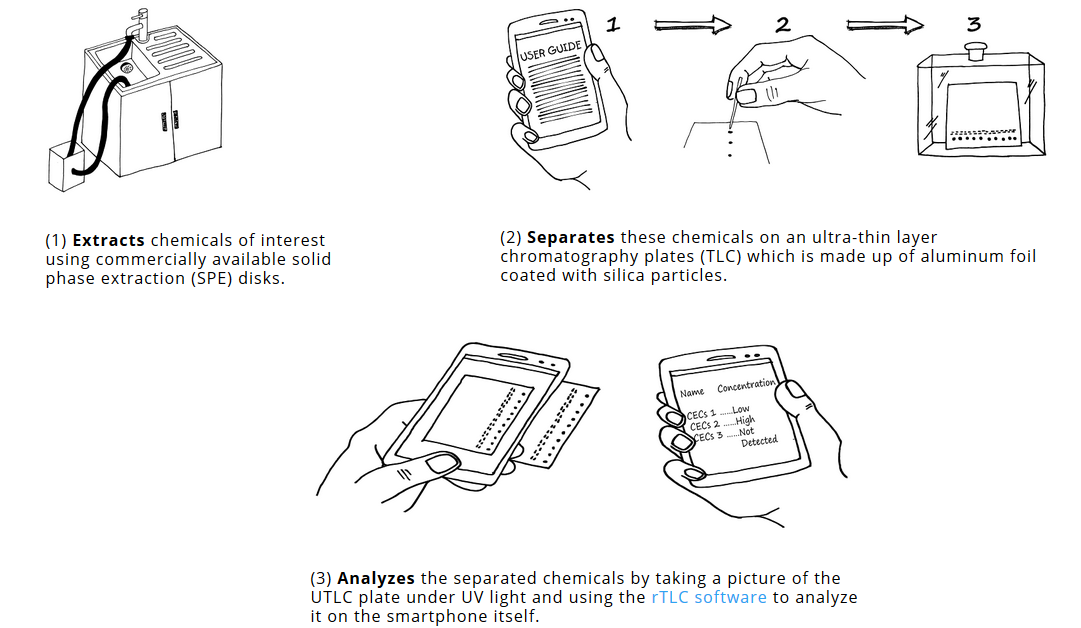Methods
Summary
ChemPrint kits rely on three key technologies: solid phase extraction, thin layer chromatography and surface enhanced raman scattering (SERS) to provide a fingerprint on a wide spectrum of chemicals, and by comparing the spectra with a library of reference SERS spectra, we can not only identify the harmful chemicals present, but also quantify it with high accuracy (0.001 - 0.1 parts per billion (ppb) One ppb equals: one microgram per liter or 0.001 parts per million (ppm), or 0.001 mg/L.
For a subset of chemicals, we can also use regular TLC with fluorescence quenching to semiquantify it by using the web based rTLC software right from the smartphone itself as shown below.
Challenges
Our major goal is to design the instruction manual in such a way that an user with no prior training can perform the test consistently to obtain scientifically acceptable data without any assistance from an expert to make it a revolutionary kit. This is indeed the greatest challenge, and we hope to overcome this issue by having real users test it and give us their feedback so that we can modify the instructions accordingly.
We hosted a workshop with eight high schoolers where we used the early draft of our protocols to perform the testing, and it required our intervention at couple of occasions and those have been included in the next version.
Pre Analysis Plan
We plan to analyze the ChemPrint's TLC plates using the web based software called rTLC and a R based code to compare with Raman/SERS reference spectral library. The mass spectrometry data obtained from lab based methods will be analyzed using R packages such as nontarget, mzmine, metfrag and Xcms. Please go to references spreadsheet to find more background papers on our protocols and data analysis methods.
Protocols
This project has not yet shared any protocols.
